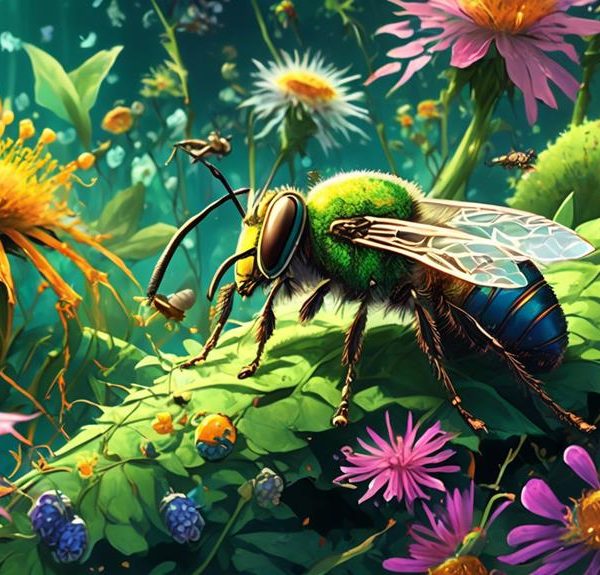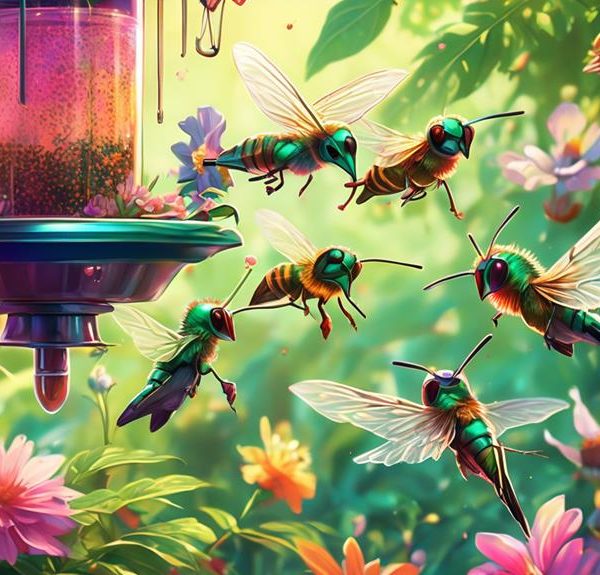Highlighting the unsung heroes of the garden, discover how sweat bees contribute to pollination and sustain our food chain.
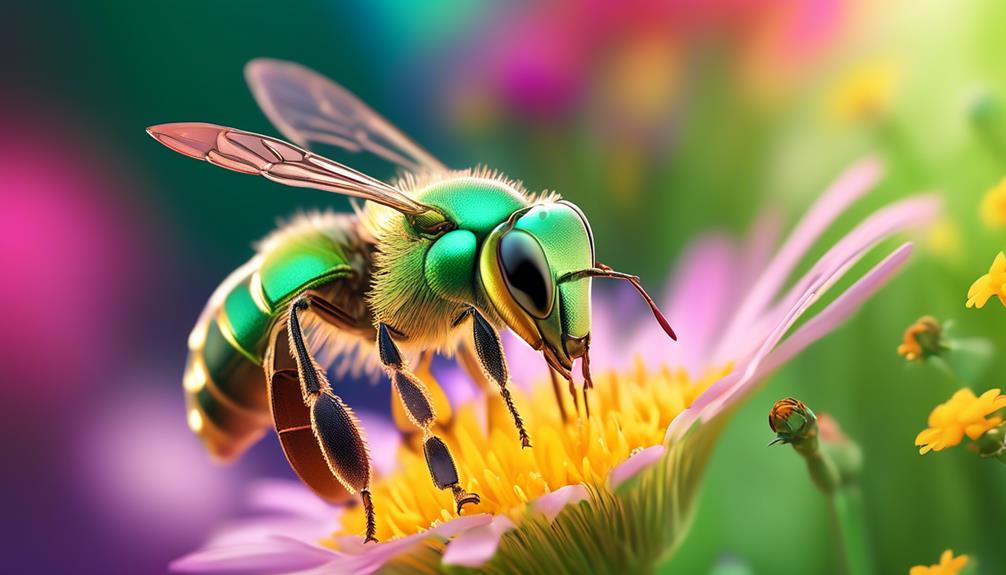
What Do Sweat Bees Pollinate
Have you ever stopped to consider what those tiny sweat bees buzzing around your garden are actually doing? You might be surprised to know that these small insects play a crucial role in pollinating a wide variety of plants.
Sweat bees are known to pollinate several types of flowers, fruits, and vegetables, contributing significantly to our food chain. Despite their small size, they demonstrate remarkable efficiency, ensuring the survival and propagation of many plant species.
The significance of their role might just make you want to explore this topic further.
Key Takeaways
- Sweat bees play a crucial role in pollinating a wide variety of plants, including flowers, fruits, and vegetables.
- They contribute significantly to our food chain and ensure the survival and propagation of many plant species.
- Sweat bees are attracted to the nectar and pollen of flowers, and as they move from flower to flower, they transfer pollen, resulting in pollination.
- Sweat bees are primary pollinators of blueberry plants and also play a key role in pollinating crops like onions, carrots, and strawberries. Without sweat bees, there would be fewer blueberries and other fruits and vegetables.
Understanding Sweat Bees
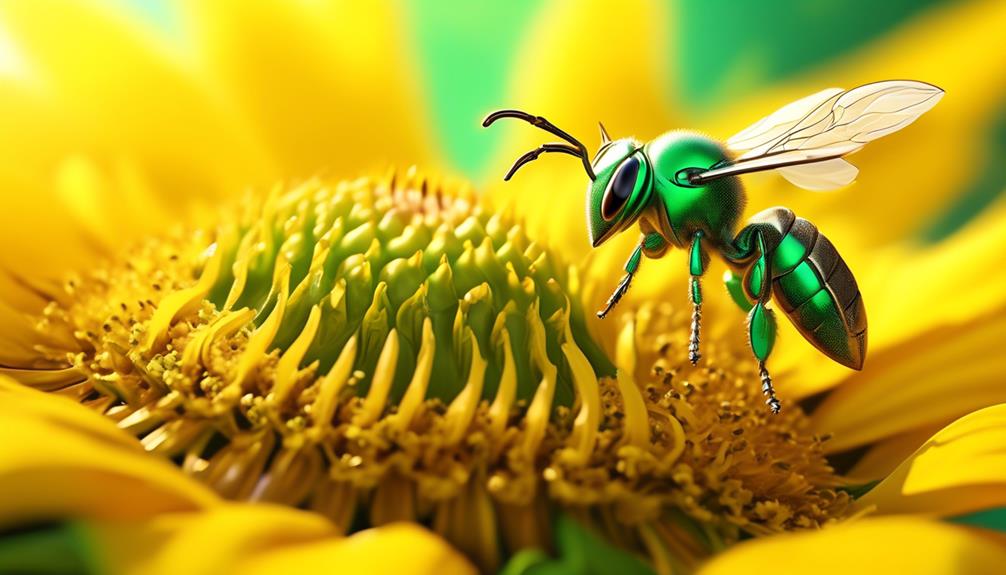
Despite their off-putting name, sweat bees play a vital role in our ecosystem, particularly in the pollination process. You might be surprised to learn how important these little creatures actually are. They're not as famous as their honeybee counterparts, but they're just as crucial.
These bees, named for their attraction to human sweat, are usually solitary creatures. Unlike other bees that live in large colonies, most sweat bees prefer to live alone. Their tiny size, often less than half an inch, allows them to easily go unnoticed. But don't let their small stature fool you. They're hard workers and help in pollinating a variety of plants.
While they're not primary pollinators, they do their part in supplementing the work of other bees. They're particularly fond of flowering plants, and their love for sweat doesn't exclude the nectar of flowers. They're more likely to be found in your garden, helping your flowers bloom.
Sweat Bees and Flower Pollination
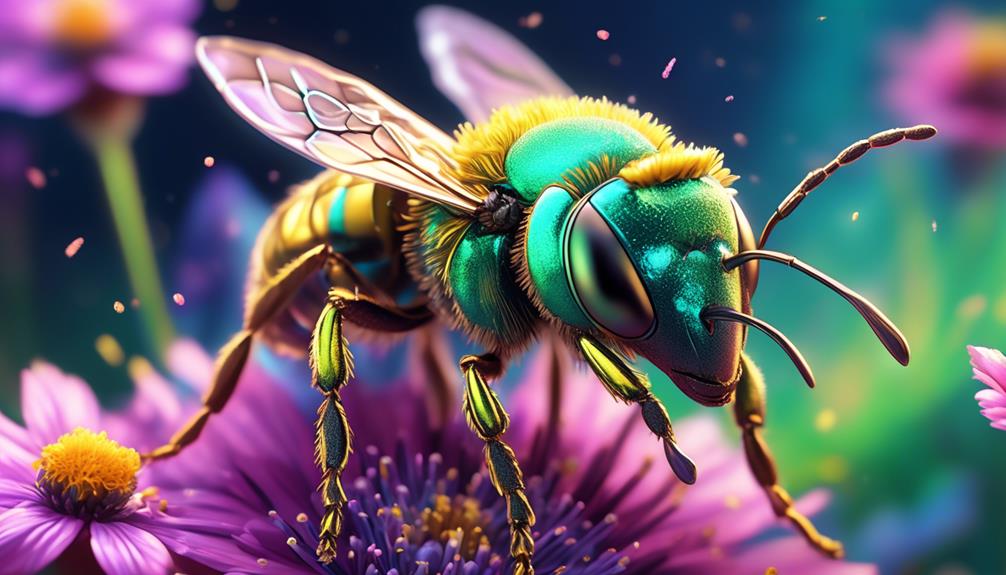
Now, let's explore how sweat bees' attraction to flowering plants aids in their pollination. You may not realize it, but these tiny bees play a vital role in the pollination process. Sweat bees are attracted to the nectar and pollen of flowers, which they gather to feed their young. As they move from flower to flower, they unwittingly transfer pollen. This movement of pollen from one plant to another is what we call pollination.
Here's a more detailed look at how this process works:
- Sweat bees land on the flower to collect nectar and pollen.
- As they do this, pollen sticks to their bodies.
- When they visit the next flower, some of this pollen rubs off onto the flower's stigma, or the part of the flower that receives pollen.
- This pollen then grows a tube down into the flower, reaching the ovules.
- Fertilization occurs when the pollen tube reaches an ovule and delivers sperm.
- This results in the growth of seeds and fruit.
Without sweat bees and other pollinators, we'd have far fewer flowering plants and much of the fruit we enjoy would be scarce. So, let's appreciate the hard work these little bees do!
Influence on Fruits and Vegetables
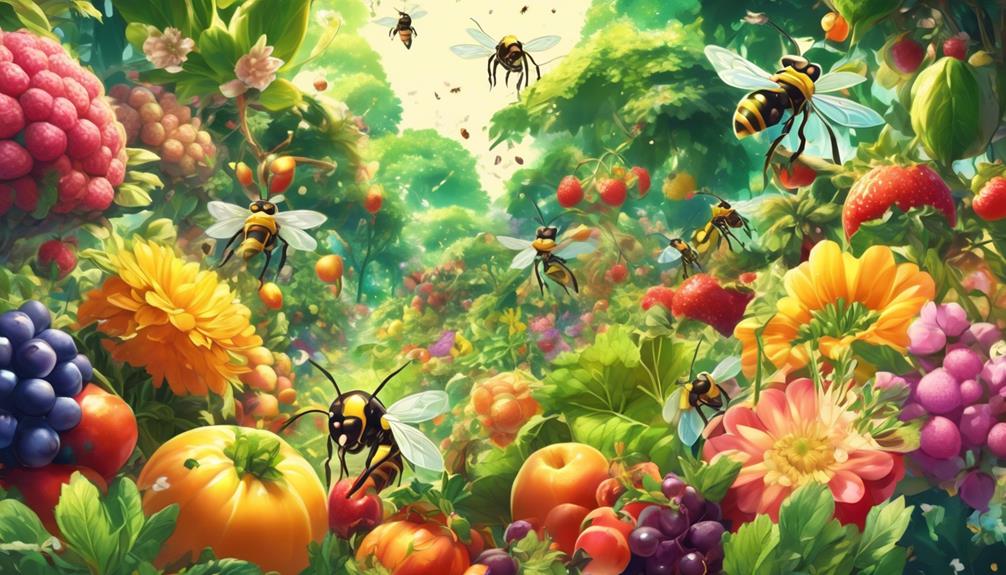
You might be surprised to learn just how crucial sweat bees are to the growth of many fruits and vegetables we consume daily. These small insects play a substantial role in pollinating a diverse range of plants, contributing significantly to our food supply.
Consider blueberries, for instance. You're probably aware that they're a superfood, packed with antioxidants. But did you know that sweat bees are one of the primary pollinators of blueberry plants? That's right. Without these diligent workers, we'd have far fewer blueberries to enjoy.
And it's not just about blueberries. Sweat bees also pollinate crops like onions, carrots, and strawberries. So, the next time you're biting into a juicy strawberry or adding onions to your cooking, you've got sweat bees to thank.
Importantly, sweat bees aren't just helping us have more delicious foods. They're also contributing to biodiversity and the health of ecosystems. By pollinating different plant species, they're ensuring that these plant populations continue to thrive.
Role in Ecosystem Maintenance
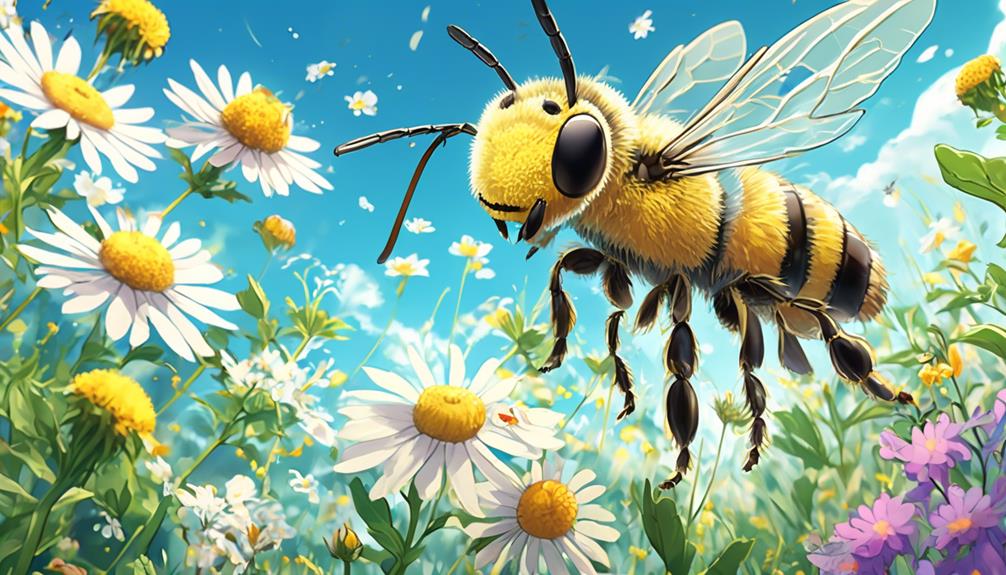
Beyond their pivotal role in food production, sweat bees also maintain the overall health and balance of our ecosystems. You may not realize it, but these little creatures are crucial to the survival of our planet. Here's how:
- Pollination: Sweat bees are important pollinators for many wildflowers and crops. They help plants reproduce, which maintains biodiversity.
- Cross-pollination: By visiting various flowers, they spread pollen from one plant to another, facilitating cross-pollination. This process increases the genetic diversity of plants, which strengthens the ecosystem.
- Prey and Predator: Sweat bees play a dual role in the food chain.
- As prey: They serve as a food source for various animals like birds and spiders, supporting a diverse fauna.
- As predator: Sweat bee larvae feed on nectar and pollen, controlling the plant population and maintaining balance.
Threats to Sweat Bee Populations
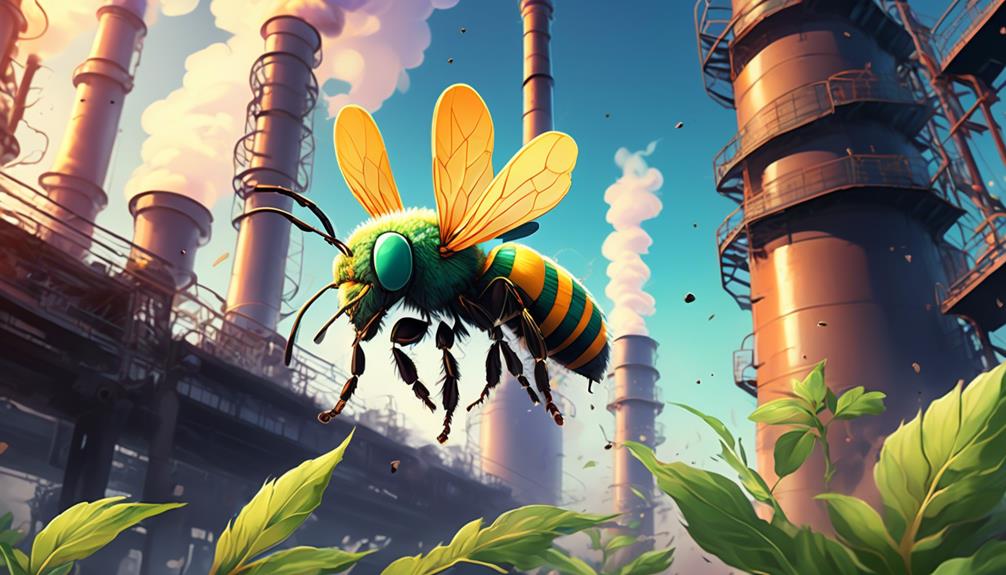
Despite their vital role in ecosystem balance, sweat bee populations face significant threats due to a variety of factors.
You mightn't realize it, but human activities are the primary culprits. Urbanization and the consequent habitat loss pose a grave danger. As we encroach on their natural habitats, these bees are left homeless and struggle to survive.
Pesticides also play a destructive role. They're not just harmful to pests, but also to beneficial insects like sweat bees. Exposure to these chemicals can lead to immediate death or weaken the bees, making them more susceptible to diseases.
Climate change is another factor you can't ignore. Changes in temperature and weather patterns can disrupt the bees' lifecycle and behavior. They might emerge from hibernation too early or too late, missing the flowering plants they rely on for food.
Lastly, there's the issue of invasive species. These invaders can outcompete sweat bees for resources or even prey on them.
In essence, it's a tough world out there for these little pollinators. So next time you see one, remember they're more than just a nuisance – they're an essential part of our ecosystem facing serious threats.
Conclusion
So, you see, sweat bees play a critical role in pollinating flowers, fruits, and vegetables. Their tireless work keeps our ecosystems balanced.
However, their populations are under threat. It's our responsibility to protect these tiny pollinators, ensuring the survival of the plants they pollinate and our own food supply.
Remember, every creature, no matter how small, has a significant role in our world. Let's respect and protect them.

